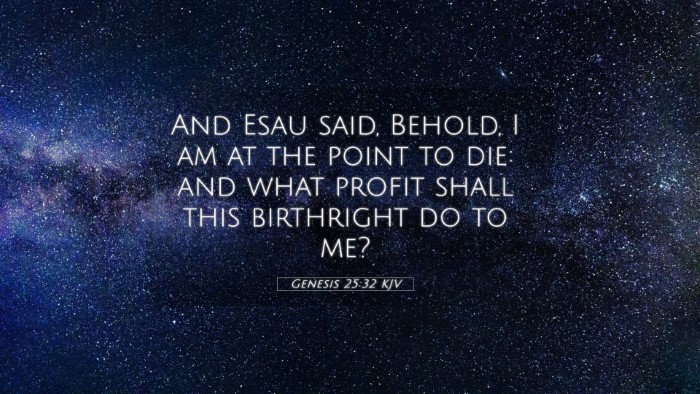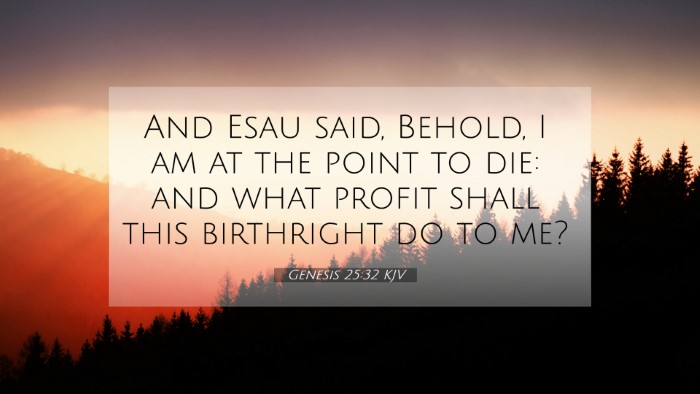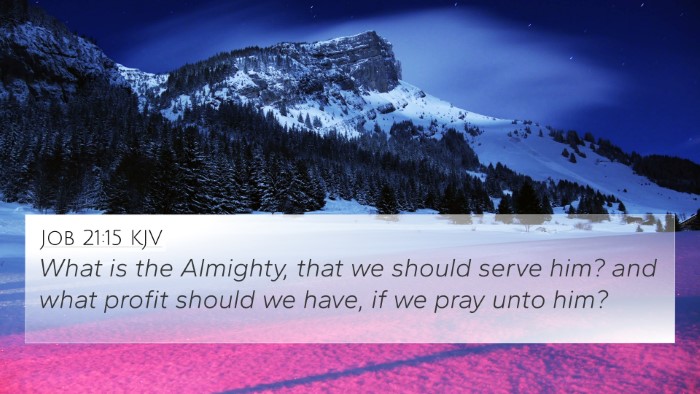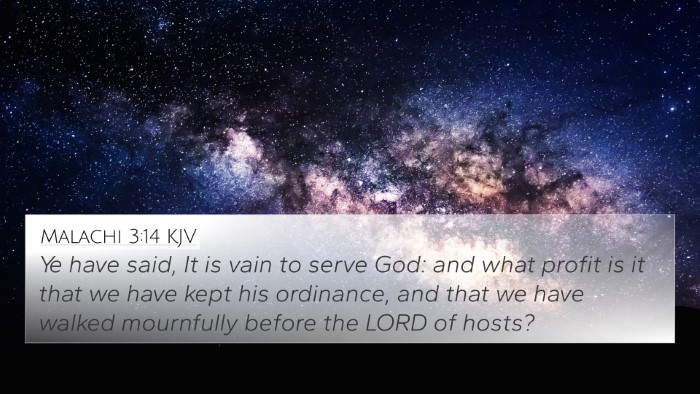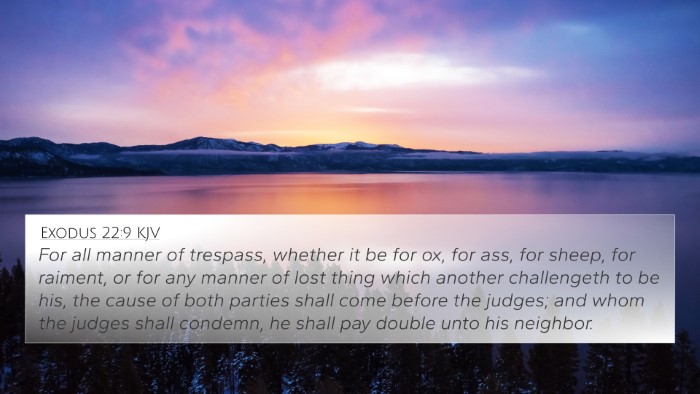Bible Verse Meaning: Genesis 25:32
Genesis 25:32 states: "And Esau said, Behold, I am at the point to die: and what profit shall this birthright do to me?"
This verse captures a significant moment in the life of Esau, one that highlights the impulsiveness of human nature and the value of spiritual significance over physical desires.
Summary of Insights
Various public domain commentaries provide insights into this verse, showcasing its theological depth and practical implications:
-
Matthew Henry:
Henry explains that Esau's desperate statement reflects a lack of foresight and value for spiritual blessings. He contrasts Esau’s physical hunger with the eternal implications of the birthright, urging readers to consider their own spiritual priorities.
-
Albert Barnes:
Barnes emphasizes the significance of the birthright in biblical times, representing not just physical inheritance but also spiritual leadership. Esau's response reveals a common flaw of prioritizing immediate gratification over lasting blessings.
-
Adam Clarke:
Clarke discusses the cultural context, suggesting that Esau's claim foreshadows the larger narrative of Jacob and Esau. His reckless behavior signifies a broader warning against trading what is holy for what is temporary.
Theological Themes
This verse connects to numerous biblical themes and teachings about value, priorities, and human weaknesses:
- Spiritual Value vs. Temporal Needs: The idea that spiritual inheritance is far more important than immediate physical satisfaction.
- The Danger of Impulsiveness: Esau's impulsive choices reflect broader human tendencies to overlook long-term consequences for immediate pleasures.
- God's Sovereignty: This narrative indicates how God uses human actions and decisions to fulfill His divine purpose in the unfolding biblical story.
Cross-References
Here are some related Bible verses that enhance the understanding of Genesis 25:32:
- Hebrews 12:16-17: This passage warns against being profane like Esau, who sold his birthright for a single meal.
- Genesis 27:36: Highlights Esau’s confusion and regret over his lost birthright, emphasizing the irreversible nature of his lost blessing.
- Malachi 1:2-3: The Lord speaks about His love for Jacob and hatred for Esau, showcasing the divine preference for Jacob’s line.
- 1 Corinthians 9:25: Paul compares the Christian life to an athlete's discipline, indicating the value of eternal rewards over temporary gains.
- Matthew 4:4: Jesus' declaration that man does not live by bread alone speaks to the necessity of prioritizing spiritual sustenance over physical needs.
- Philippians 3:19: Paul warns against those whose god is their belly, signaling a caution against living for immediate gratification.
- James 4:14: This verse reflects on the fleeting nature of life, urging believers to have an eternal perspective rather than focus solely on earthly cravings.
Application and Reflection
As we engage with Genesis 25:32, readers are encouraged to reflect on their own lives:
- What do we value most? Are we trading spiritual inheritance for temporary satisfaction?
- How can we cultivate a mindset that prioritizes God's promises and blessings over immediate desires?
- What does it mean to live a life of foresight, considering the eternal implications of our daily choices?
In summary, Genesis 25:32 serves as a powerful reminder of the importance of spiritual priorities over temporal needs. It invites believers to meditate on their own life choices and the values that guide them in light ofScriptural truths.

